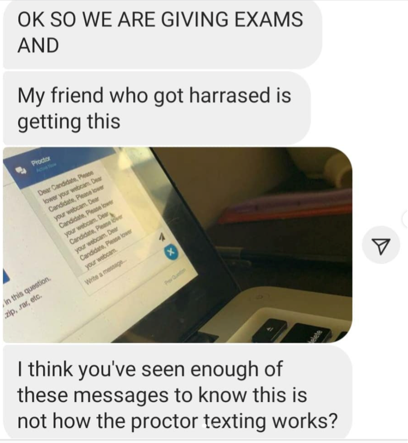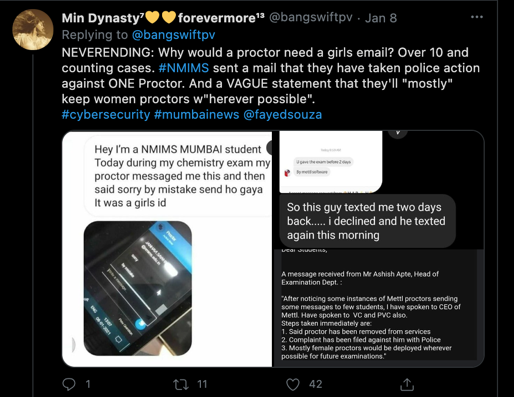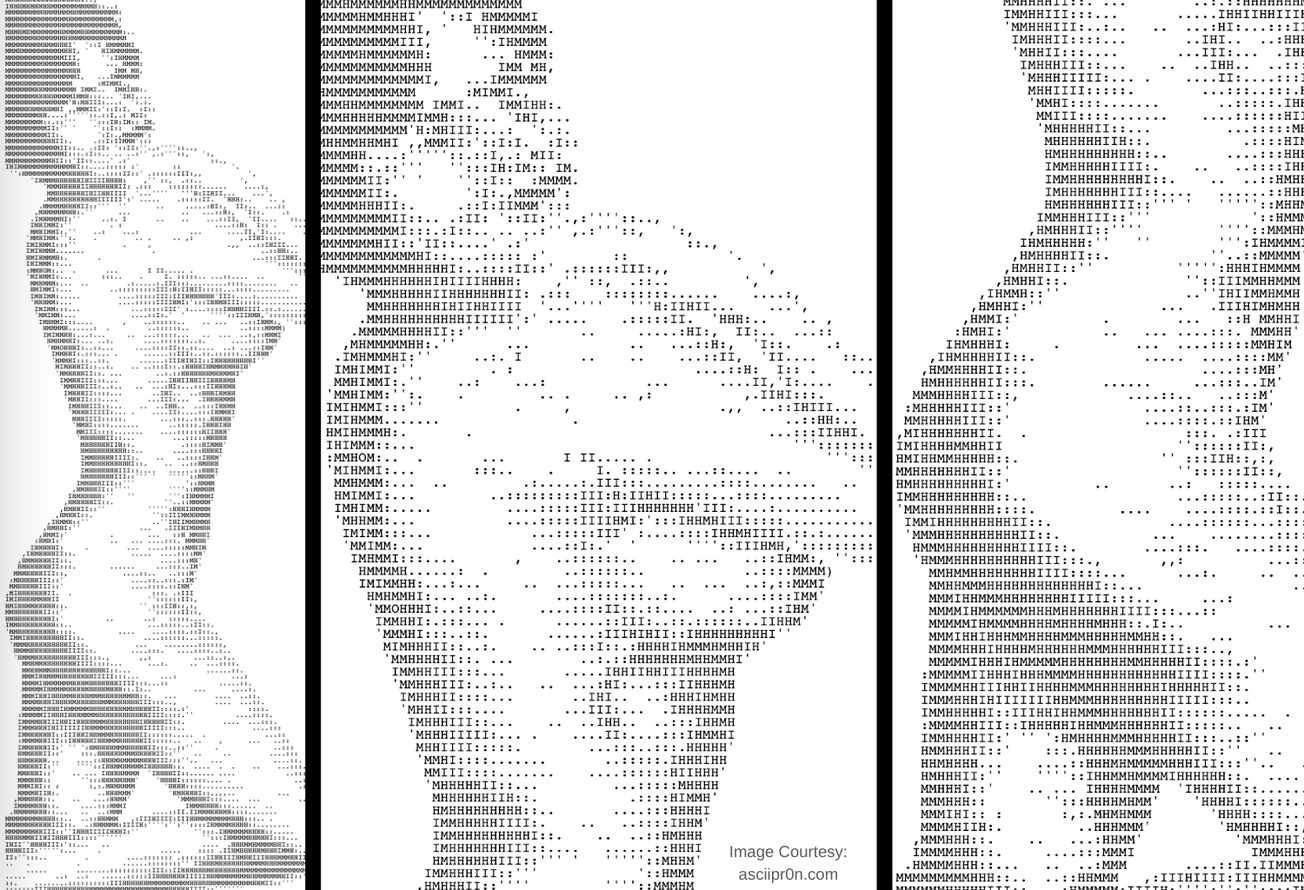Image Courtesy: Philipp Katzenberger
In mid-July, 2020, with the pandemic in full swing, college administrations all across India were scrambling to switch to online teaching following the latest recommendations by the Ministry of Education. College students across the country were introduced to Mercr Mettl, an online exam and remote proctoring platform. In other words, they would be required to write their exams on a program that would run on their browsers, their screens would have to be shared they would be asked to make sure all other applications were closed, and mics and cameras kept on at all times.
On the Mercr Mettl platform, students writing exams could neither see themselves nor the proctor. Generally, people like to be aware when they are being looked at and how someone is looking at them. Oblivious to the students, the proctors could well be taking their pictures or accessing their personal information. A student from Narsee Monjee Institute of Management Studies (NMIMS) took to Instagram to say how students, “along with exam stress” will have “the anxiety of a potential creep looking at them”.
Naturally, the system seemed highly intrusive and students across colleges started voicing their disapproval to administration staff while some were creating memes in apprehension.
Proctors started preying on students
In the first week of January 2021, students at NMIMS began reporting instances of online harassment during their exams. Many were sharing their harrowing encounters about proctors sending them invasive and inappropriate messages on the platform’s chat box, even asking for social media accounts or phone numbers. Proctors were found nicking personal information such as email addresses from the personal information students had provided for login verifications. On the 7th of January 2021, a group of students at NMIMS started talking to each other about a repeat offender who contacted several of them using different numbers. One student reported that she was getting spammed with messages and the proctor was asking her to lower the webcam during an exam, presumably inappropriately, to show more of her body.




Those across the country still writing their semester examinations were soon reading about these events as reports emerged in mainstream media that at least four students from NMIMS had complained about being harassed online during their exams by proctors hired by Mercr Mettl.
Many women writing exams logged in with trepidation, feeling queasy about the intrusive gaze of the proctors. Some wore thick woolly clothes or draped themselves in blankets to feel “safe”. The power dynamic between proctors and students in any examination was now further skewed. Not only could the proctors scrutinize the students move and pry on them without being seen, they even had access to their private information extending their influence beyond the duration of the exam. Giving in personal information was compulsory for verification but if a student complied, they were now also risking their personal integrity.
Being observed induces fear and anxiety not to mention exam pressure that is so intense, it is known to push many to suicide in India. With pandemic stress already taking a heavy toll on students' mental health, why were they obliged to use a technology that hadn't gone through adequate testing and exposed them to predatory proctors during exams?
Untested technology and the heavy price students had to pay
Mercr Mettl proved to be far more inefficient and user unfriendly than anyone had initially expected. It wasn’t compatible across all operating and depended on Excel, a paid software, to be running in the background. These initial glitches were later resolved. But students still had no way of knowing if the data on their personal devices could be compromised. The institute administrations were least concerned. They had a simple answer- if students were so worried about a data breach on their system, they should delete all their data.
Not only were technical drawbacks and ethical challenges glaringly evident, the platforms basic capability to prevent cheating was seemingly not adequate. Some colleges started asking for physical mirrors to be placed behind students to ensure they wouldn’t cheat. Clearly, these desperate measures were introduced because college administrations themselves didn’t trust Mercr Mettl’s “student integrity indices”- algorithmic calculations based on retina tracking that determined how likely a student was to have cheated. Some institutes got in internal members as proctors to keep an eye on the students. These were either doctoral students or academic associates, employees of the institution that would have been invigilators if the exams were not being conducted offline. The surveillance became relentless.
Mercr Mettl may or may not have adapted some features since but students are left feeling that were used as guinea pigs to test the platform’s shortcomings. Each time an exam went wrong either due to a technical glitch on the platform, user error or internet instability, for students it had a material impact- they felt their grades were getting affected and possibly their future. Re-tests were often not allowed, as institutes were convinced about the inevitability of cheating and assigned more credibility to the platform rather than the students’ reports of technical glitches.
It is unfortunate, but with all of these things put into perspective, what happened at NMIMS is just the most predictable outcome of enforcing untested, poorly administrated assessment systems. Although the college later issued a press release stating that they have formed a committee to look at the complaints , and promising students that they “will arrange for female proctors”, one wonders if it was too little, too late. Pages like @official.humans.of.nmims on Instagram have come under fire for disenfranchising the experiences of these students, calling upon them to save the reputation of their college rather than speaking out.
There’s nothing more important than exams, not even students
As exam season concluded, the complaints died down. The accused were taken off the system after the committee was formed at NMIMS. But the country’s education system still remains largely online. What measures have been taken to prevent harassment in the future exam seasons, only time will tell. But this incident has showed us how in the name of rigour, college administrations are willing to subject students to great amounts distress and have little regard for their privacy whilst enforcing supposedly innovative anti-cheating methods.
The legitimacy of proctored online examinations via software such as Mercr Mettl ought to be questioned. If “nothing is more important than exams” then nothing should be more important that providing safe and ethical ways for students to be able to write these exams. The “rigour” should not be one sided with the sole aim of surveilling students unsparingly but it should also be applied to scrutinize the conduct and methods of those imposing this discipline.








